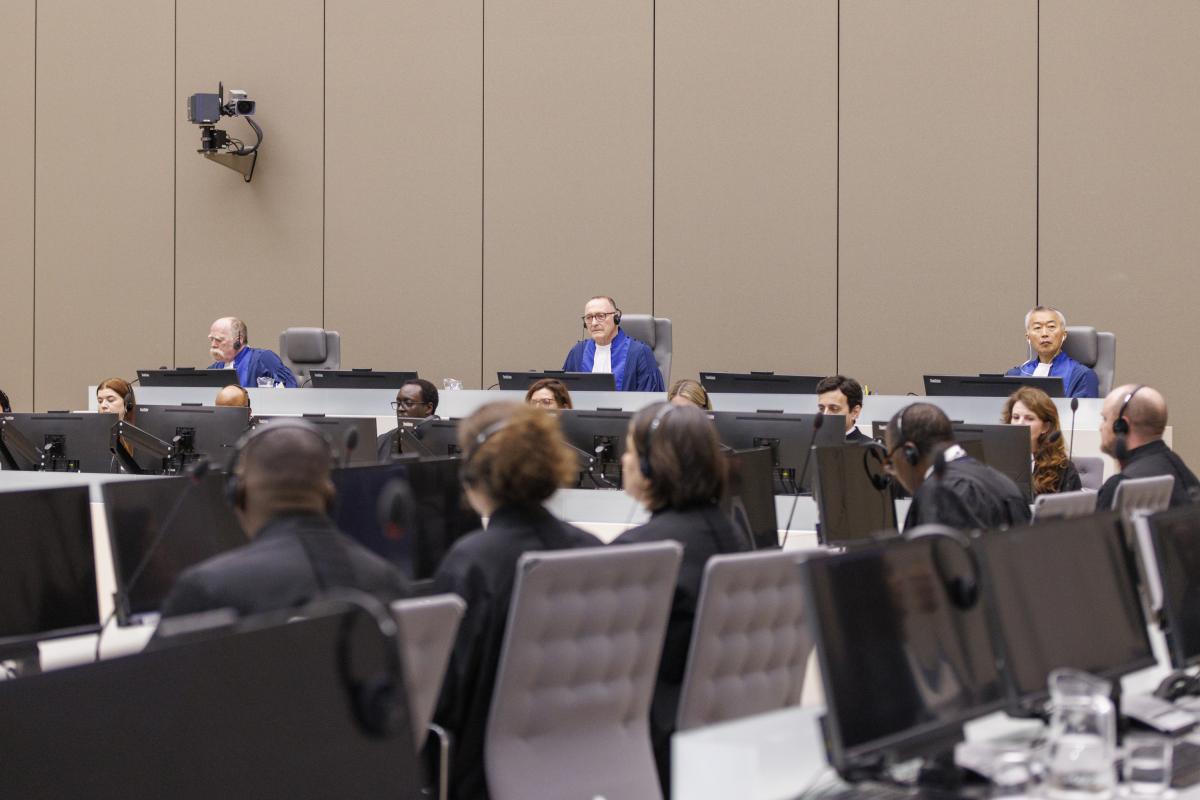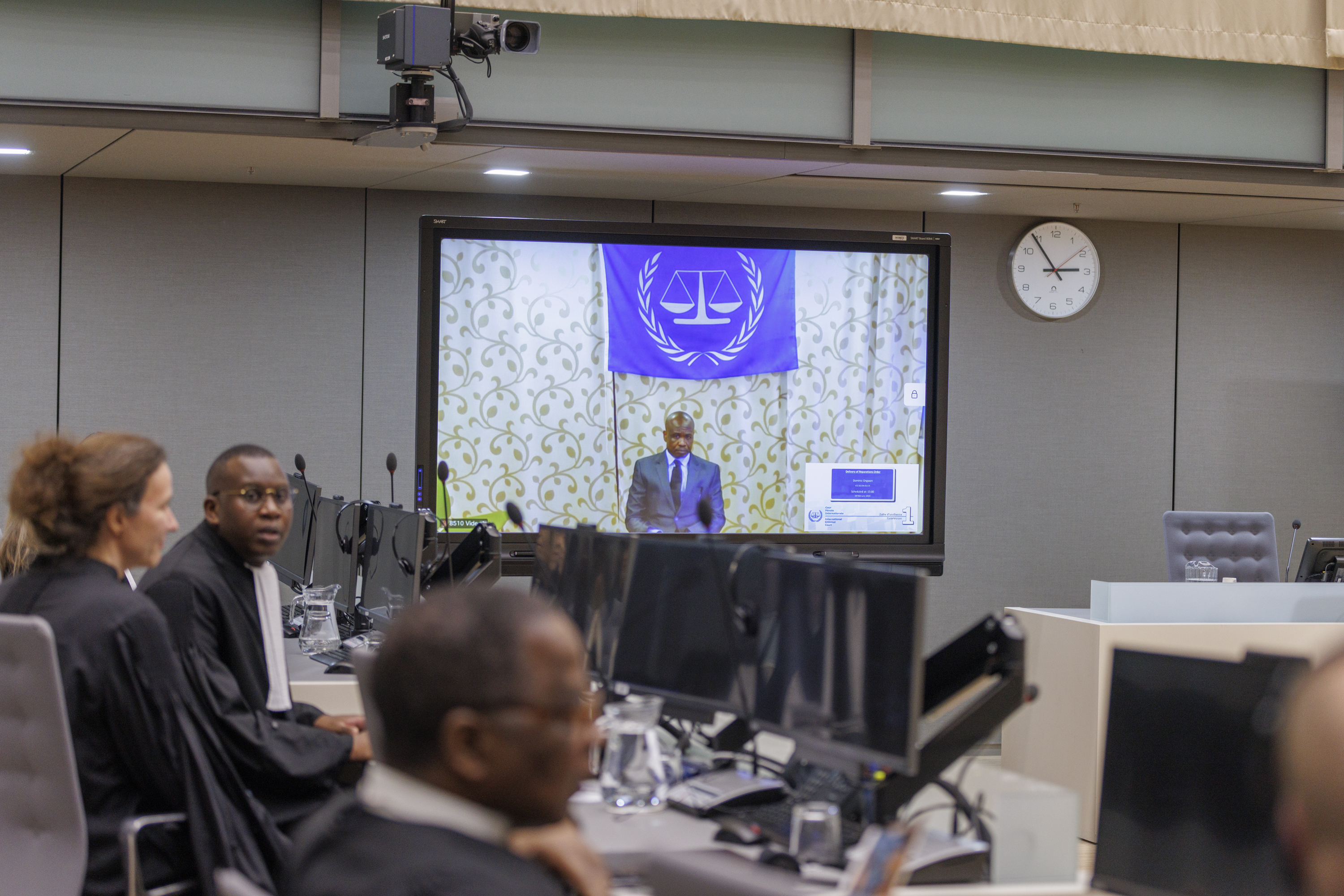Ongwen case: ICC Trial Chamber IX orders reparations for victims

Today, 28 February 2024, Trial Chamber IX of the International Criminal Court ("ICC" or "Court") composed by Judge Bertram Schmitt, Judge Peter Kovács, and Judge Chang-ho Chung, delivered in a public hearing its Order on Reparations to victims in the case of The Prosecutor v. Dominic Ongwen. The Chamber set the financial liability of Mr Ongwen to € 52,429,000 EUR and ordered collective community-based reparations focused on rehabilitation and symbolic/satisfaction measures, consisting of collective rehabilitation programmes, as well as a symbolic award of €750 EUR for all eligible victims, and other community symbolic measures.
Judge Bertram Schmitt, Presiding Judge, read a summary of the Order for reparations against Mr Ongwen. He explained that the Chamber estimated the number of potentially eligible direct and indirect victims to be approximately 49,772 victims.
The Chamber concluded that the direct victims of the attacks, direct victims of sexual and gender-based crimes, and children born of those crimes, and former child soldiers suffered serious and long-lasting physical, moral and material harm. The indirect victims of all of these crimes suffered moral and material harm. In addition, the entire community of victims suffered community harm, and children of direct victims and children born out of sexual and gender based crimes suffered transgenerational harm.
The Chamber found Mr Ongwen indigent for the purposes of reparations and encouraged the Trust Fund for Victims (TFV) to complement the reparation awards, to the extent possible, and engage in additional fundraising efforts to the extent necessary to complement the totality of the award.
Noting Mr Ongwen’s indigence, the Chamber also acknowledges that it would be for the TFV’s Board of Directors to determine whether and when to use its ‘other resources’ to complement the reparations awarded in the present case.

The Chamber instructed the TFV to submit for the Chamber’s approval by 3 September 2024, at the latest, a draft plan for the implementation of the rehabilitation and symbolic measures to be included within the collective community-based reparations awarded. The Chamber also requested the TFV to prioritize the payment of the symbolic monetary awards over the rehabilitation and other symbolic measures. The Chamber acknowledged it will take time before any payments are actually distributed to the victims and that not all victims would receive the symbolic amount at the same time, noting that payments would be issued depending on the victims’ urgent needs and vulnerability and the capacity of the TFV to complement the award.
The Chamber encourages States, organisations, corporations, and private individuals to support the TFV’s mission and efforts and contribute to its fundraising activities.
Summary of the Order read in Court
Questions and Answers on the Order: English
Full hearing:
- Video (MPEG-4) for viewing and download: Floor; French; Acholi
- Audio (MPEG-3) for download: Floor; French; Acholi
- YouTube (for viewing): Floor; French; Acholi
Background: On 4 February 2021, Trial Chamber IX found Dominic Ongwen guilty for a total of 61 crimes comprising crimes against humanity and war crimes, committed in Northern Uganda between 1 July 2002 and 31 December 2005. On 6 May 2021, Trial Chamber IX sentenced Dominic Ongwen to 25 years of imprisonment. On 15 December 2022, the Appeals Chamber confirmed the decisions of Trial Chamber IX on Dominic Ongwen’s guilt and sentence. The conviction and the sentence are now final. On 18 December 2023, Mr Ongwen was transferred to Norway to serve his sentence of imprisonment. On 6 May 2021, the Chamber issued an order for submissions on reparations.
For further information on this case, check here
For further information, please contact Fadi El Abdallah, Spokesperson and Head of Public Affairs Unit, International Criminal Court, by telephone at: +31 (0)70 515-9152 or +31 (0)6 46448938 or by e-mail at: [email protected]
You can also follow the Court’s activities on Twitter, Facebook, YouTube, Instagram and Flickr